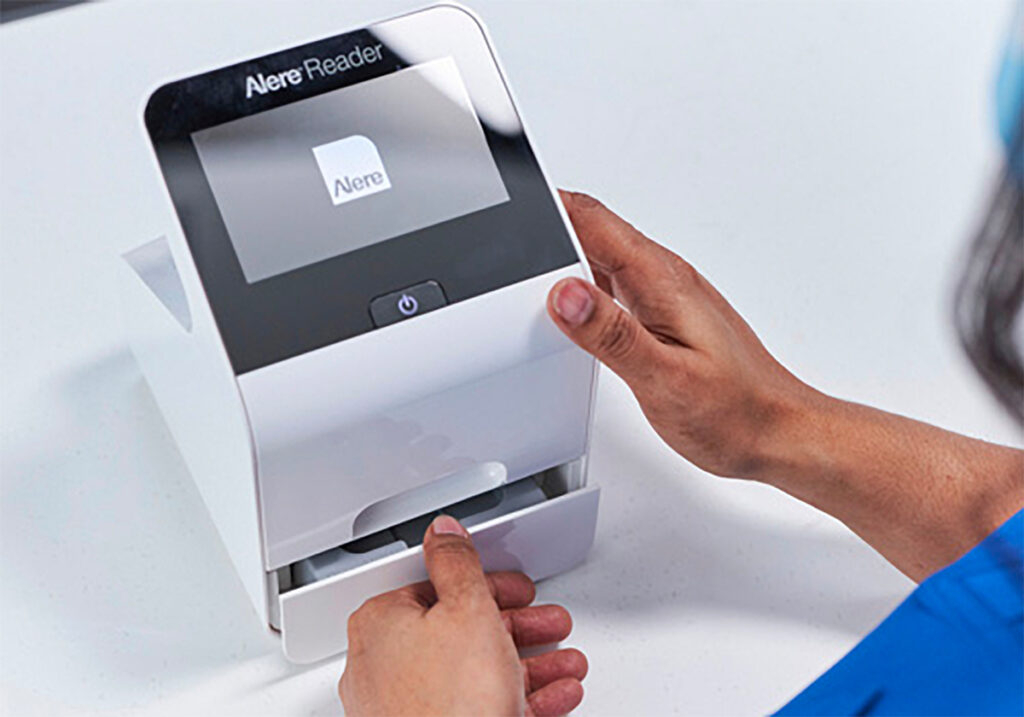Sponsored – McKesson

With the rising demand for point-of-care testing (POCT), health systems and physician practices are finding new ways to improve patient care and outcomes, strengthen operational efficiencies with in-office laboratories and access new revenue sources.
In 2020, there were upwards of 266,000 laboratories in the United States laboratory market. More than 120,000 of those facilities were physician office labs (POLs), including independent practices and hospital-affiliated physician offices with point-of-care lab testing, according to the 2021 HIDA Laboratory Market Report.1
If your health system or physician practice is seeking ways to increase patient satisfaction and build revenue-generating services that set you apart from the competition, adding or upgrading an in-office lab and point-of-care testing could be a profitable solution.
Meeting the demand for point-of-care testing
The COVID-19 pandemic has increased the demand for point-of-care testing and diagnostics in the United States and globally, boosting revenues in the laboratory testing market by 9.1% year-over-year since 2020.1
At the same time, lab testing for a lengthy list of other acute and chronic conditions and diseases is always in demand. To keep up with patient expectations for quality care, services and convenience, your physician office or health system must be supported with the right lab operations for better health systems management.
“It’s extremely important for health systems to have a well-defined and streamlined laboratory solution for their network,” says John Harris, vice president of strategic accounts, laboratory, at McKesson Medical-Surgical.
“Having the right mix of central lab and point-of-care testing can ensure that healthcare providers are able to diagnose and treat patients in the most efficient way possible.”
Point-of-care testing can help generate revenue for your health system
When your health system or physician practice implements and establishes point-of-care testing, your business becomes more appealing to patients. At the same time, you’re taking steps toward generating additional revenue and controlling costs.
Leveraging your health system’s in-house lab for revenue generation offers the ability to:
- Reduce or eliminate payments to other labs
- Exert greater control over setting lab fees
- Provide direct oversight of lab-testing quality
- Eliminate or reduce delays in send-out testing
- Receive direct reimbursement by insurance and Medicare to create more efficient healthcare revenue-cycle management
- Maintain a competitive advantage by providing lab services unavailable at other healthcare provider offices
- Schedule fewer follow-up appointments, creating openings for new patients and reducing staff time spent contacting patients who don’t follow through with off-site lab testing
Point-of-care testing can help increase patient satisfaction
Providing in-office lab services to patients sets your practice or health system apart from competitors. Most patients welcome the convenience of not having to drive to a separate lab for diagnostic testing or schedule a follow-up appointment for results.
Faster turnaround times for lab results can also lead to a speedier diagnosis, which means treatment can begin sooner and patient outcomes can be improved.
“Point-of-care testing is critical to the success of a patient’s overall wellness,” says Harris. “Whether you’re confirming strep before providing antibiotics or monitoring a patient’s A1C levels to adjust treatment, having testing results at the point of interaction can dramatically affect the patient’s treatment and overall health.”
Considering the cost of an in-house lab
Providing point-of-care testing for your patients can pay off by generating revenue in the long run. However, your practice or health system must consider and plan for some initial and recurring costs that may accompany the implementation of POCT.
These expenses can include:
- Renovation and downtime costs. You may need to upgrade electricity, add water lines and lighting, and do other renovations that could create downtime
- Equipment purchase or rental costs. These can include a lab-only (no food allowed) refrigerator, centrifuges, rocker, and supplies such as urine collection cups and phlebotomy consumables
- Lab manager salary and other lab staff wages
- Regulatory fees, including federal CLIA fees for a moderately complex point-of-care lab, inspection fees, and state inspection or other fees
With point-of-care testing at more than one location, it’s important to standardize products and processes to ensure that all point-of-care labs are using the most appropriate and cost-effective products to generate higher revenue and minimize loss.
Many health systems evaluate their product and supplies with a full value-analysis team. The team may include clinicians, nurses, quality management and supply chain experts. The analysis team may also create patient-education and infection-prevention resources and guidelines.
“When thinking through the clinical, operational and financial outcomes of a lab strategy, several departments should be involved in the process,” says Harris. “There are many elements to a laboratory decision. Having a diverse team of experts can ensure that the right decisions for the entire system are being made.”
Work with your distributor to plan & prepare
When developing the best point-of-care testing strategy for your health system, your distributor can help you design and prepare your business plan.
McKesson Medical-Surgical specializes in laboratory testing, products and services, offering expertise and guidance on many aspects of implementing an expanded lab and point-of-care testing, including:
- Analysis of patient population and payer mix
- Equipment setup and purchasing vs. rental costs
- Knowledge and assessment of testing demand
- Creation of a value-based care analysis
- Standardization of supply chain operations
“It’s important to understand the goals of the health system and build lab solutions around them,” says Harris.
“We take a holistic approach when it comes to lab strategy and planning, because success looks different from system to system. We’re diligent in understanding those needs and have a robust team of lab specialists who can partner with our customers to ensure maximum success.”
We’re here to help
McKesson Medical-Surgical specializes in laboratory testing, products and services across the non-acute continuum. We offer specialized implementation teams, equipment setup, lab consulting and a wide array of other laboratory system solutions to help seamlessly integrate your lab operations.
